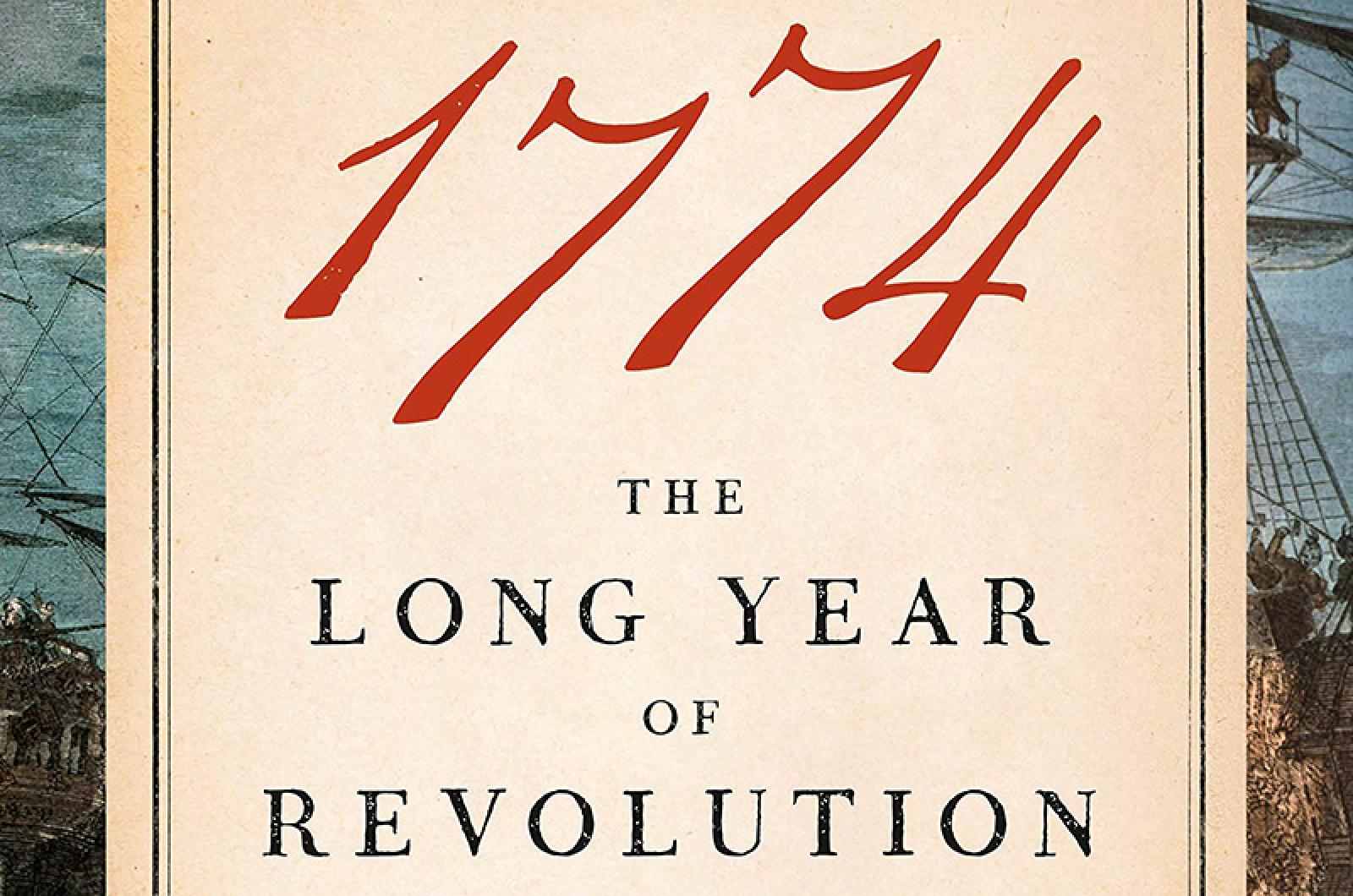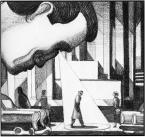1774: The Long Year of Revolution by Mary Beth Norton, Knopf, $32.50, 480 pgs.
Even before the American Revolution was over, people were arguing about when it started. Was the kickoff date 1770, when British soldiers stationed in Boston killed five people in an event that was first provoked and then exploited by colonial organizers like Samuel Adams? Or was it 1772, when the British customs vessel Gaspee ran aground in Rhode Island and was looted and torched by angry colonials? Or what about the world-famous igniting incident of 1773, the Boston Tea Party, when a gang of Bostonians (led by Samuel Adams) destroyed a shipment of East India Company tea at Boston Harbor? Looking at the history shelves, it seems like the American Revolution had more ignition-startings than the Indy 500.
Back in 1977, for the bicentennial, John Pancake wrote 1777: The Year of the Hangman, for instance. In 2005 the bestselling historian David McCullough joined the vocal majority with his book 1776, plunking for the Declaration of Independence over miscellaneous squabbles and gunfire. In 2016 Dean Snow considered one of those military squabbles as key when he wrote 1777: Tipping Point at Saratoga. Kevin Phillips, in his 2012 book, took the bellicose view in 1775: A Good Year for a Revolution that his chosen year was more important than its predecessor: “The earlier year’s cocky optimism,” he wrote, “its advance guard of hundreds of new grassroots Patriot committees, its political gambles, and its unsung military successes enabled and entrenched de facto American independence.”
1775 is a natural choice, since it was the year of the skirmishes at Lexington and Concord after which it suddenly seemed inconceivable to resume peaceful relations. 1774 is earlier than most of these books tend to venture, a bland enough year, a year of low-boil simmering discontent in the American colonies. It isn’t a natural target for ignition revision, but the great historian (and Vineyard seasonal resident) Mary Beth Norton chooses it anyway in her new book 1774: The Long Year of Revolution.
The subtitle hints a bit at methodology: the “long year” in question here is long enough to include the Boston Tea Party happening right at the end of 1773 and the skirmishes of Lexington and Concord happening three-and-a-half months into 1775. But Ms. Norton, author of half a dozen books including 2002’s brilliant In the Devil’s Snare, spends most of her time well within those bookends, concentrating on the unrest growing everywhere in colonies increasingly chafing under ham-handed British rule.
By the freezing-cold beginning of 1774, that unrest had turned splotchy and ugly. In January, for instance, a Falmouth customs officer was tarred, feathered, beaten and mocked on a podium by a large crowd ordering him to resign. Only two months later, Peter Oliver, the Chief Justice of Massachusetts, avoided the funeral of his brother, the lieutenant governor, because of the hooting, sneering mob that gathered to watch the body lowered into the ground. Throughout the winter, those mobs seemed to assemble daily.
“The tumult of the people is very properly compared to the raging of the sea,” said Samuel Adams with a piety that belied the fact that he was in very nearly complete control of all of those mobs at all times. “When the passions of a multitude become headstrong, they generally will have their course.”
Ms. Norton follows the byzantine courses of her year’s passions on an almost day-by-day level, tracing lesser-known disputes like whether or not the East India Company was due financial compensation for the tea it lost in Boston Harbor and larger marquee events like the First Continental Congress that met in Philadelphia in October.
According to a pronouncement by John Jay, that Congress had essentially only three choices: “Negotiation, suspension of Commerce, and War.”
Faced with such stark alternatives, the colonies roiled with tension and Ms. Norton deftly marshals a wide array of primary sources to clothe that tension in human faces and voices, with a variety that’s often missing from Revolutionary War histories.
“Once convinced of the truth of the news from Massachusetts,” Ms. Norton writes about the immediate aftermath of Lexington and Concord, “colonists knew their world had changed.”
1774 is a harrowing and affecting portrait of the year when that change became inevitable.







Comments
Comment policy »